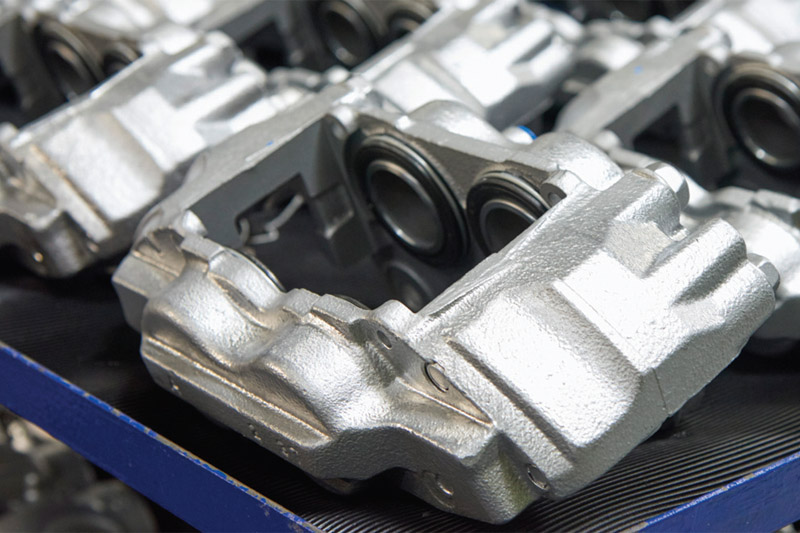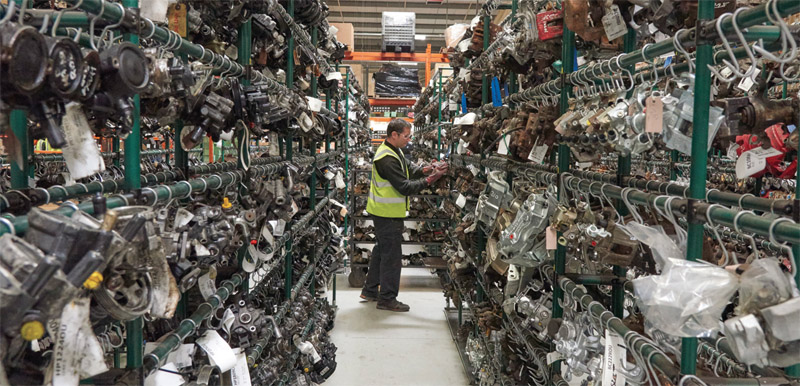
Shaftec’s Marketing Manager, Joe Toakley, talks to PMM about the potential for brake calipers seizing given many vehicles remained idle or barely used over lockdown, what to look for if you think a caliper has seized, and the effects the UK MOT extension has on a timely diagnosis of this problem.
It’s fair to say that none of us – our vehicles included – have been out much during the last 18 months. However, now things are getting back to some sort of normality, it’s important that we check the condition, performance, and therefore safety of any vehicle that has been idle before they get back up to speed.
Inactivity and corrosion are the main reasons why brakes seize. It’s not uncommon for a car’s brakes to seize if it has been left sitting idle for months – especially if it is parked outside. And it’s quite possible that seized calipers won’t be picked up until the next MOT, and if the MOT is postponed, this could mean a lot of drivers getting stuck over the coming months.
There’s been a great deal of news coverage about the MOT delays in the UK due to the COVID-19 situation. Reports have focussed on the human effects of lost revenue, as well as on vehicle condition.
Fleet News reported that a Freedom of Information (FOI) request submitted by MoneySuperMarket had revealed that more than three million (3,025,345) cars and vans had their MOT extended from 30th March to June 2020. Broken down by EU class, that’s 2,788,594 passenger vehicles and 236,751 light goods up to 3,000kg – roughly 65,000 cars per day.
With these being figures covering a three-month period, at Shaftec, we are in complete agreement with the IAAF who said the DVSA decision to extend MOTs for a six-month period causes ‘huge challenges’ for the sector, arguing that the industry needs to ensure vehicles continue to be kept safe in these challenging times.

It has been well reported that in an attempt to rebalance MOT numbers and avoid a significant drop in workloads, the DVSA has urged motorists with a vehicle MOT due in August, September, October and November 2021 to bring their vehicle in for a test during May, June or July instead. Clearly, this would help to spot any problems before the UK weather turns again.
Seized calipers – what to look out for
If the brakes drag, the piston could be stuck within the caliper – or slide pins may have seized on single-piston calipers. If it’s the caliper slide pins causing the problem, the car may appear to drive normally but the pads will only be pushed onto the disc from the piston side. This will result in reduced braking ability on one wheel, while simultaneously wearing the pad on the piston side quicker, plus the vehicle may pull to the opposite side when hitting on the brakes.
The issue is that in many cases brake binding on one wheel will happen gradually over time making it harder to notice, and as we’ve said, may not be diagnosed until the MOT when the brakes are tested properly.
Hints and tips
- Seized brakes get extremely hot and give off a distinctive acrid smell
- It is also a good idea to flush the fluid in the entire brake system every two years. Moisture from the water absorbed by the brake fluids can cause corrosion from within the caliper itself.









